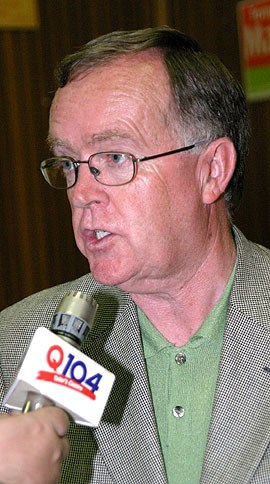NEWS RELEASE
TONY MARTIN, MP
********************* Tony Martin says residential school survivors have waited long enough
Delay to 2007 in "fast-track" compensation unacceptable
SAULT STE. MARIE – Sault MP Tony Martin says it is unacceptable that former residential school students have to wait until at least 2007 to receive compensation under a four-month-old federal program that was supposed to speed up the process.
It is now expected to take nearly a year, at minimum, to access community funding and personal compensation outlined in an agreement in principle reached in November 2005.
"Where is the justice in waiting another day to pay these survivors," said Martin. "These are human beings who are old and deserve better treatment. Some have already died. They have waited a long, long time for restitution."
"The Liberals took 13 years and never delivered the money. The Conservative government needs to do everything it can to clarify the time frame, speed up the procedure and get the money to the survivors."
The Children of Shingwauk Alumni Association estimates it has about 1,400 members in the region.
The Assembly of First Nations announced Sunday it has approved the final agreement to resolve the legacy of Indian residential schools. AFN Chief Phil Fontaine is urging all other parties in the negotiations – churches, lawyers and representatives of survivors - to endorse the agreement so it can go to federal Cabinet for approval and implementation.
When it was unveiled in November, the $1.9-billion program was hailed for its minimum payment for all former residential school students and advance payments for aging survivors.
It was touted as faster and less cumbersome than the current process.
Under the agreement, each former residential school student would get $10,000 plus $3,000 for each year spent in a residential school beyond the first year.
Students who experienced sexual or physical abuse can also apply for further compensation.
Further delays are now anticipated because of the need for cabinet and court approval, plus a legal notification period and an opting-out period when people can choose not to accept the compensation package because they want to continue with court action.
Then, former students would have to apply for their payment, even though the compensation is considered automatic under the agreement in principle.
*********************
